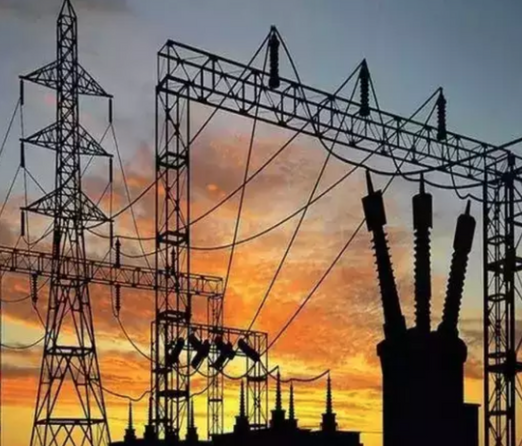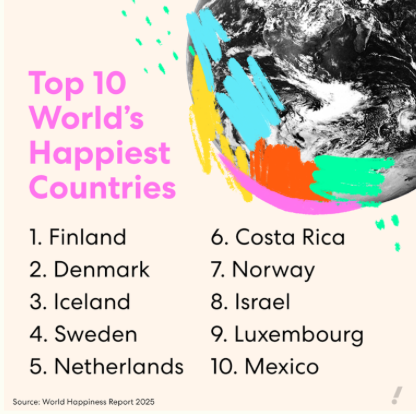Daily Current Affairs | March 21 2025
Important. Topics from Current Affairs : 1) Power Shortages in India 2) World Happiness Report 2025 3) AFSPA Review in North East 4) Digital Giant Companies
Jumbo IAS
3/21/20254 min read
1) Power Shortages in India
India’s top grid operator has flagged May and June as “high-risk months” citing anticipated power shortages, warning that unmet electricity demand could reach 15-20 gigawatts (GW), particularly during non-solar hours.
The National Load Despatch Centre (NLDC), in a new report, has recommended implementing demand-side measures, such as shifting electricity use to off-peak hours, to reduce stress on the grid during critical periods.


Reasons
Stagnant Baseload Capacity - No major growth in thermal power based baseload capacity, leading to vulnerability during non-solar hours.
Limited Storage Capacity - India’s installed renewable capacity has reached 200 GW, but with limited storage capacity of only 4.86 GW.
Intermittency of renewables.
Focus Away from Thermal - The 2017–22 National Electricity Plan deprioritized fresh thermal additions, creating a structural deficit.
Steps taken by Govt.
Storage - Mandated installation of battery energy storage systems (BESS) & pumped storage plants for new solar projects.
Investments in Thermal - Addition of 80 GW of new coal-based generation by 2031-32.
More Capacity Utilisation in Thermal Power - Efforts to import coal and revive stalled thermal projects.
Nuclear Energy - More focus on nuclear energy, especially with the arrival of Small Modular Reactors (SMRs).
Govt. has updated the National Electricity Plan (2022-27) to balance thermal and renewable investments.
Demand Side Measures
Demand Response Programs - Incentives for consumers to reduce demand during peak load period.
Smart Metering - For real-time monitoring & consumption optimisation.
Dynamic Pricing - Introduce time-of-day tariffs to discourage consumption during high peak load.
Public Awareness Campaigns.
2) World Happiness Report 2025
For the 8th consecutive year, Finland has been named happiest country in the world, as per World Happiness Report 2025.
India ranked 118th on the happiness index, while neighbouring Pakistan stood at 109th.
World Happiness Report is an annual report that ranks countries based on life satisfaction and happiness levels of their citizens.
Published by Wellbeing Research Centre, University of Oxford in collaboration with UN Sustainable Development Solutions Network.


Criteria for the Rankings
GDP per capita – economic strength of a country.
Healthy life expectancy – average life span in good health.
Social support – availability of help from family or friends.
Freedom – perceived freedom to make life choices.
Generosity – willingness of people to help others.
Perception of Corruption – trust in public institutions.
Key Highlights of the Report
Top 3 - Finland, Denmark and Iceland.
Bottom 3 - Afghanistan, Sierra Leone, and Lebanon.
New entries into the top 10 include Costa Rica (6th) and Mexico (10th).
India - Ranked 118th out of 147. Ranked below Pakistan (109) and Nepal (92).
Despite facing significant economic and social challenges, Pakistan’s relatively higher ranking suggests a stronger sense of social support among its citizens, as per the report’s analysis.
3) AFSPA Review in North East
At a review meeting chaired by the Union Ministry of Home Affairs, the Army sought the inclusion of additional police station limits in Manipur Valley under the ambit of the Armed Forces (Special) Powers Act (AFSPA).
The Ministry was reviewing the scope of AFSPA in Nagaland, Assam, Arunachal and Manipur at a multi-agency meeting.


About AFSPA
Enacted in 1958, this law gives special powers to the armed forces to maintain public order in “disturbed areas”.
Section 3 - Governor, UT Administrator or the Central Govt., through notification can declared any area as “disturbed area” where this law shall be applicable.
Section 4 - Grants armed forces personnel special powers to use force against individuals engaged in unlawful activities.
Special Powers - Arrest without warrant, Search & Seizure without warrant, Prohibition of assembly etc.
Other Important Facts
Section 6 - Provides legal protection to armed forces personnel from prosecution for actions taken under AFSPA unless the Central Government allows it.
Periodic Review - The status of disturbed areas and the necessity of AFSPA are subject to periodic review by the government, allowing for adjustments based on the prevailing law-and-order situation.
Withdrawal - Through an official notification in the Gazette.
States Under AFSPA - Manipur, Nagaland, Arunachal Pradesh, Assam, and Jammu and Kashmir.
4) Digital Giant Companies
On November 18, 2024, the Competition Commission of India (CCI) issued a landmark order imposing a fine of ₹213.14 crore and forcing several behavioural remedies on Meta.
In turn, Meta approached the National Company Law Appellate Tribunal (NCLAT) in an appeal against CCI’s order.
This has brought the question of policing digital giant companies in the mainstream.


Digital Giants
These are large technology companies that wield significant influence over global markets, user data, and public discourse through their extensive reach and data-driven business models.
Meta (Facebook, WhatsApp, Instagram), Google, Amazon, Apple, and Microsoft are often cited as prominent examples.
They contribute significantly to the digital economy but also raise concerns about monopolistic practices and data privacy.
Need to Police Digital Giants
Monopolistic Practices - To curb anti-competitive behaviours like predatory pricing, exclusive agreements, and data exploitation.
Fair Competition - Create a level playing field for smaller competitors and startups, and prevent dominant players from stifling innovation by acquiring or eliminating competitors.
Data Privacy - Ensure user data is not misused for targeted advertising or shared without explicit consent.
Indian Govt. Laws to Regulate Digital Giants -
Competition Commission of India (CCI) enforcing Competition Act, 2002.
Digital Personal Data Protection Act, 2023.
Challenges in Policing Digital Giants
Limited expertise and resources with regulatory authorities.
Digital giants operate globally, making it difficult to enforce local regulations.
Laws struggle to keep pace with evolving technologies like AI and big data.


